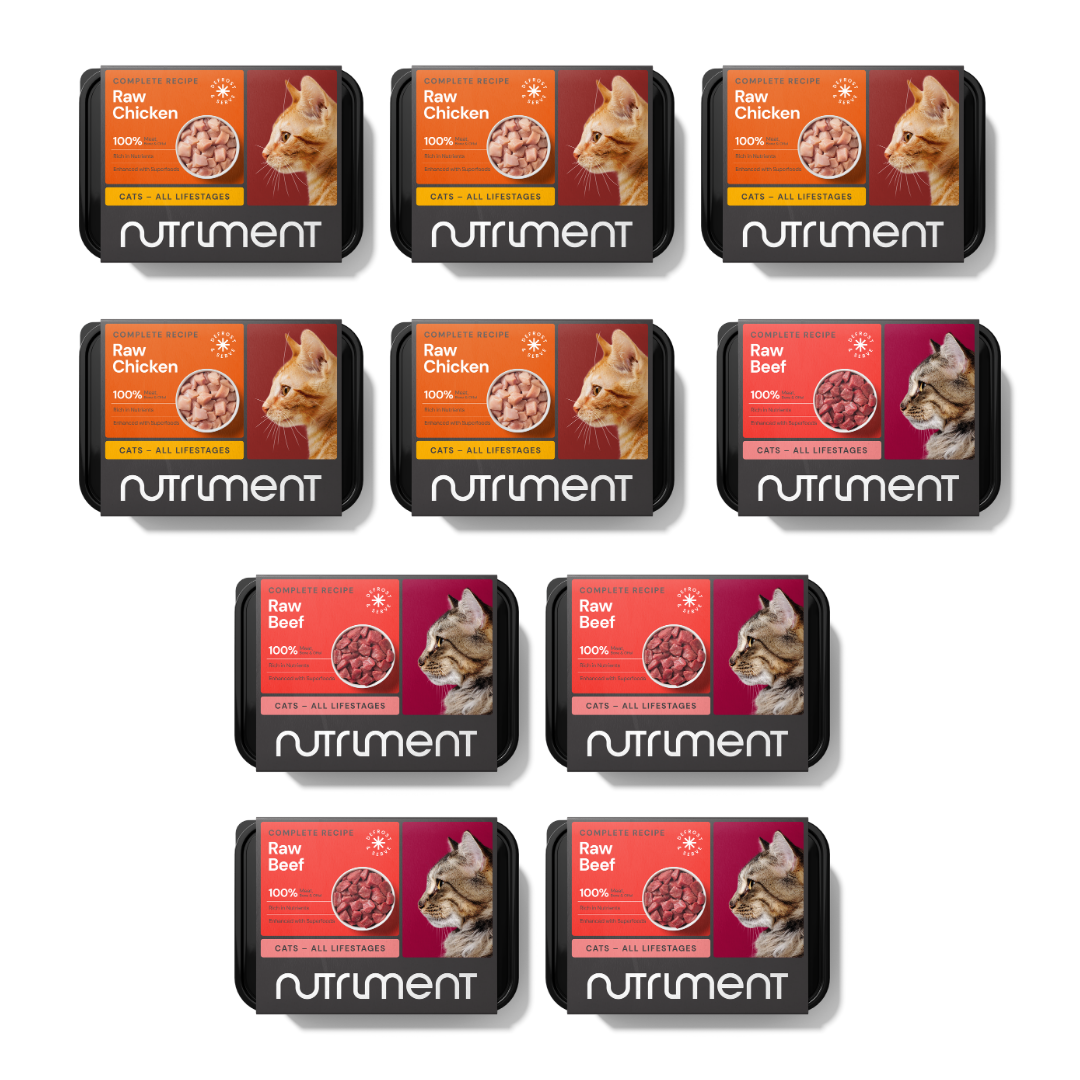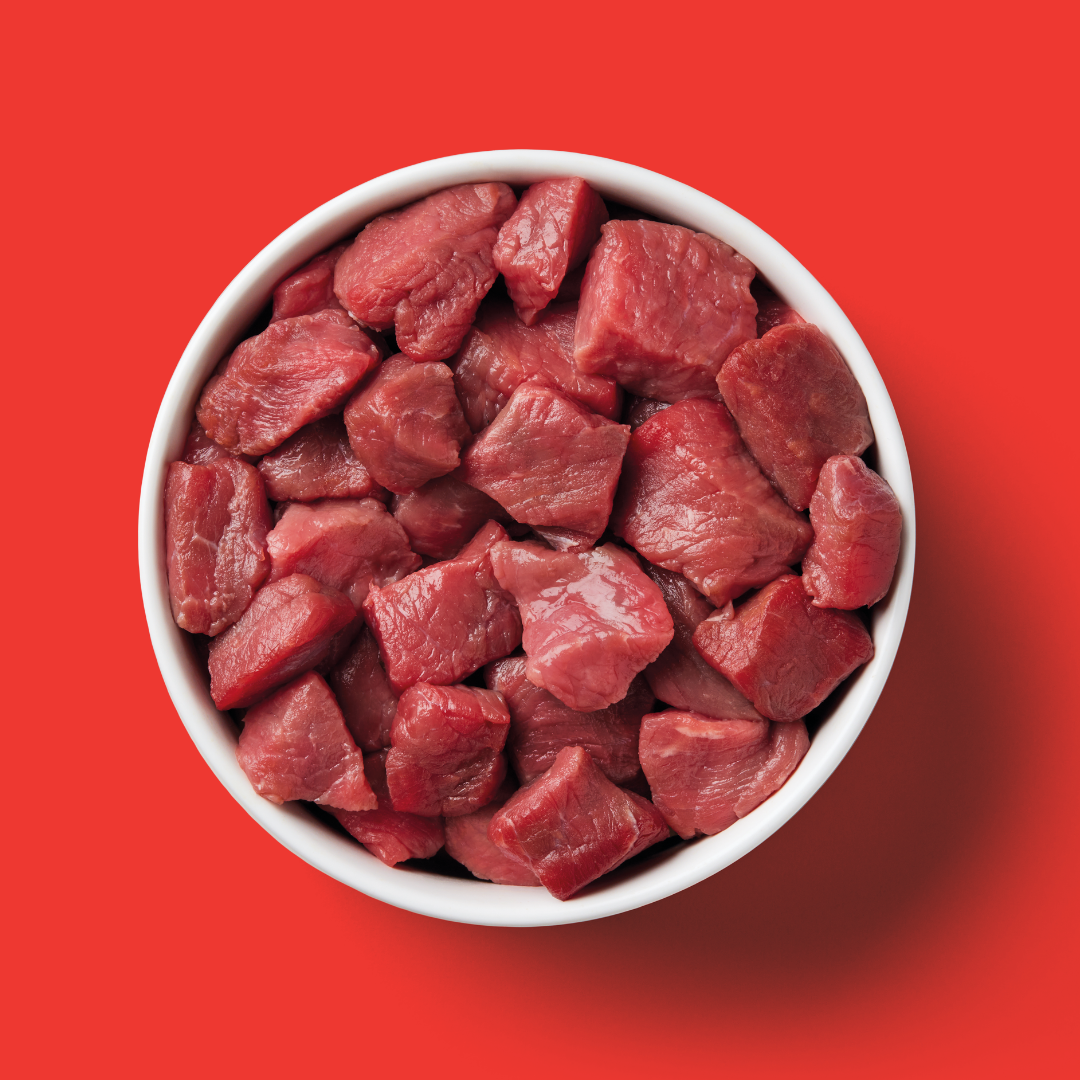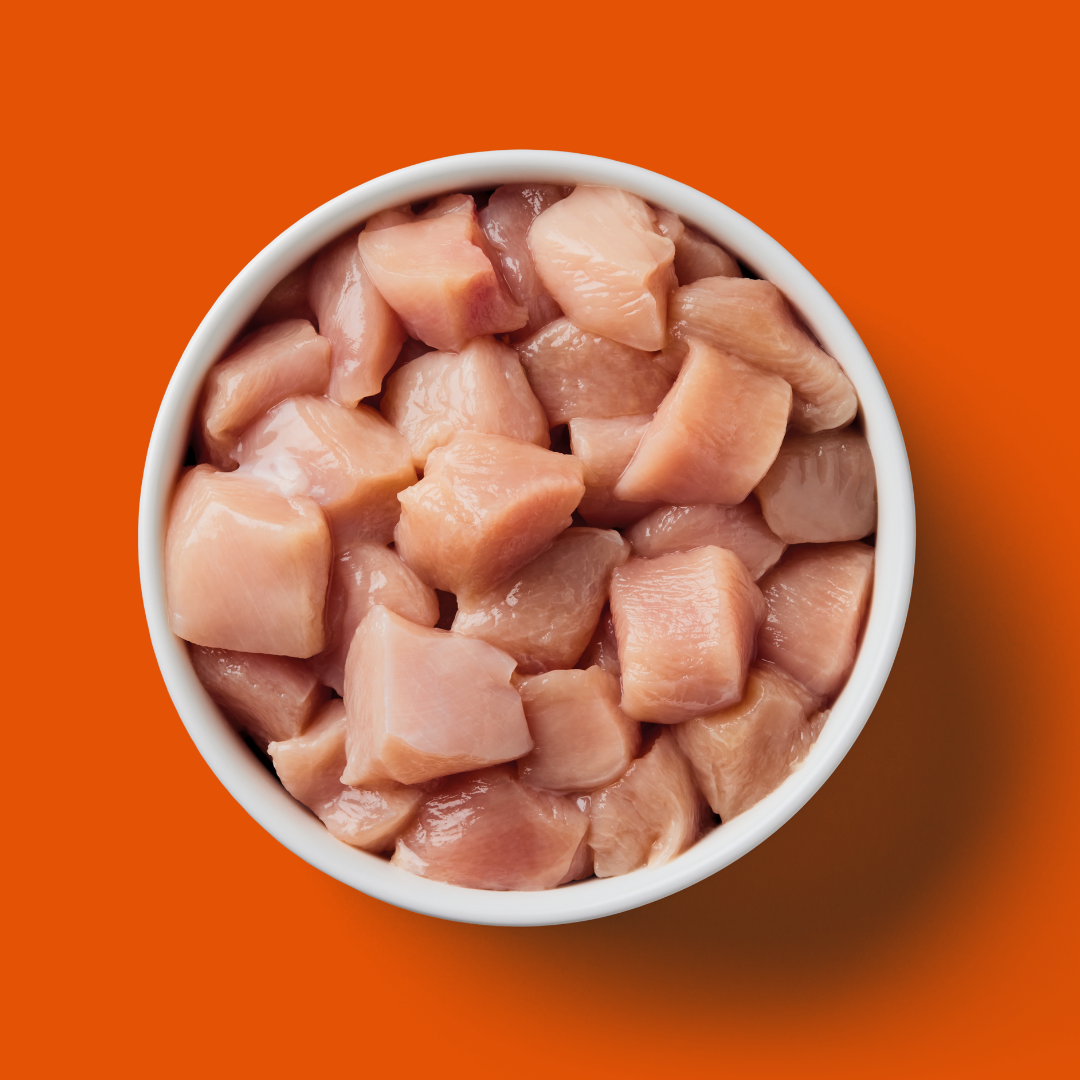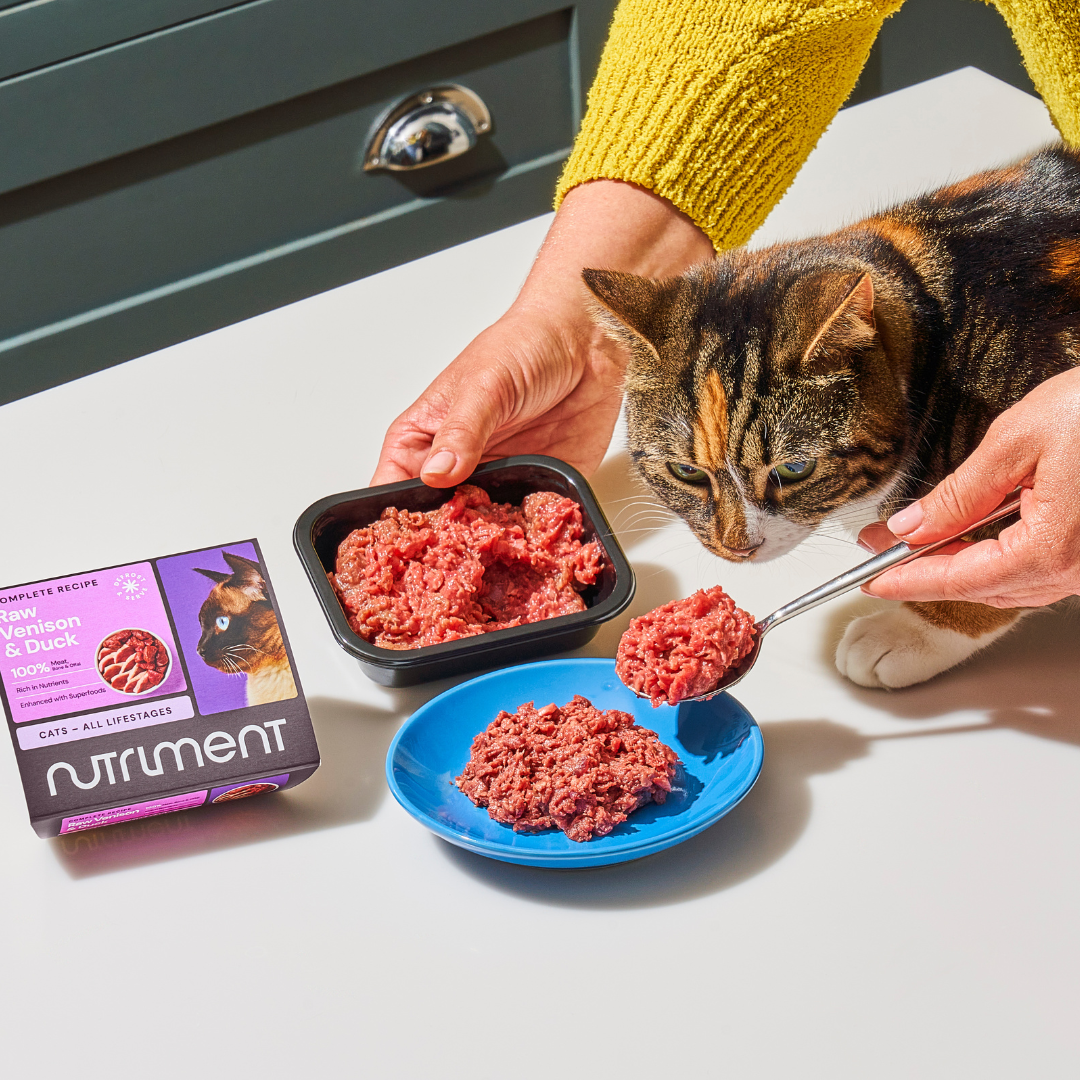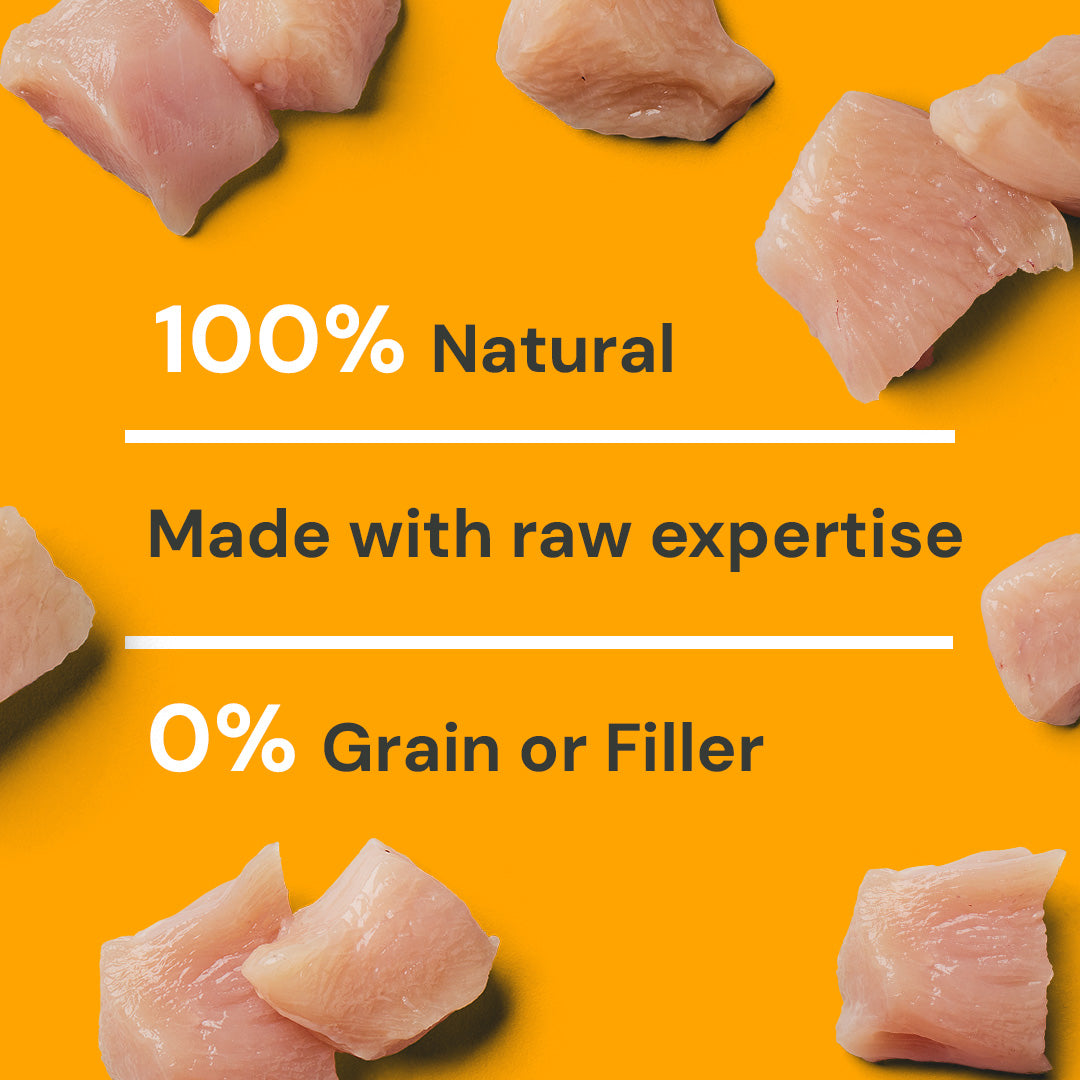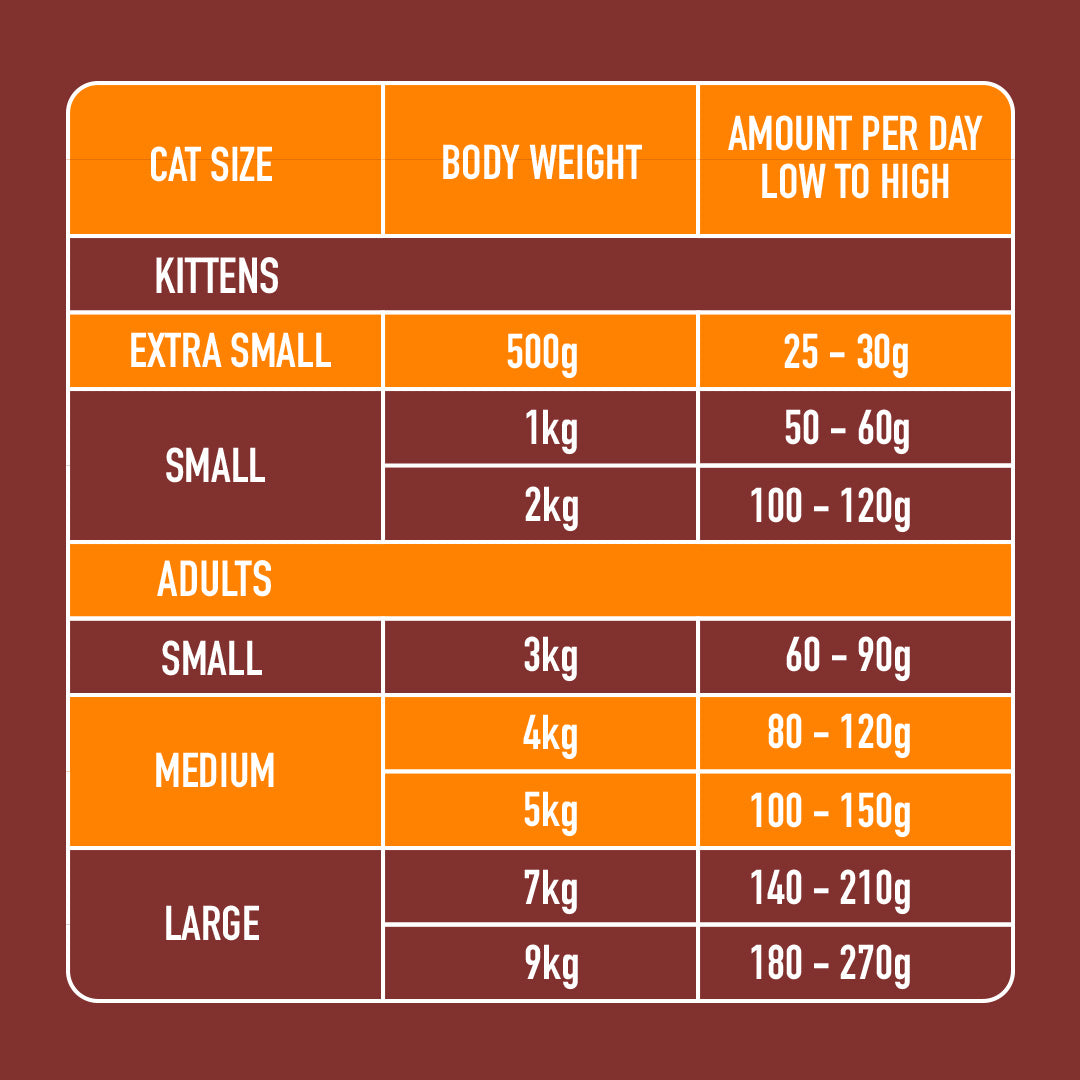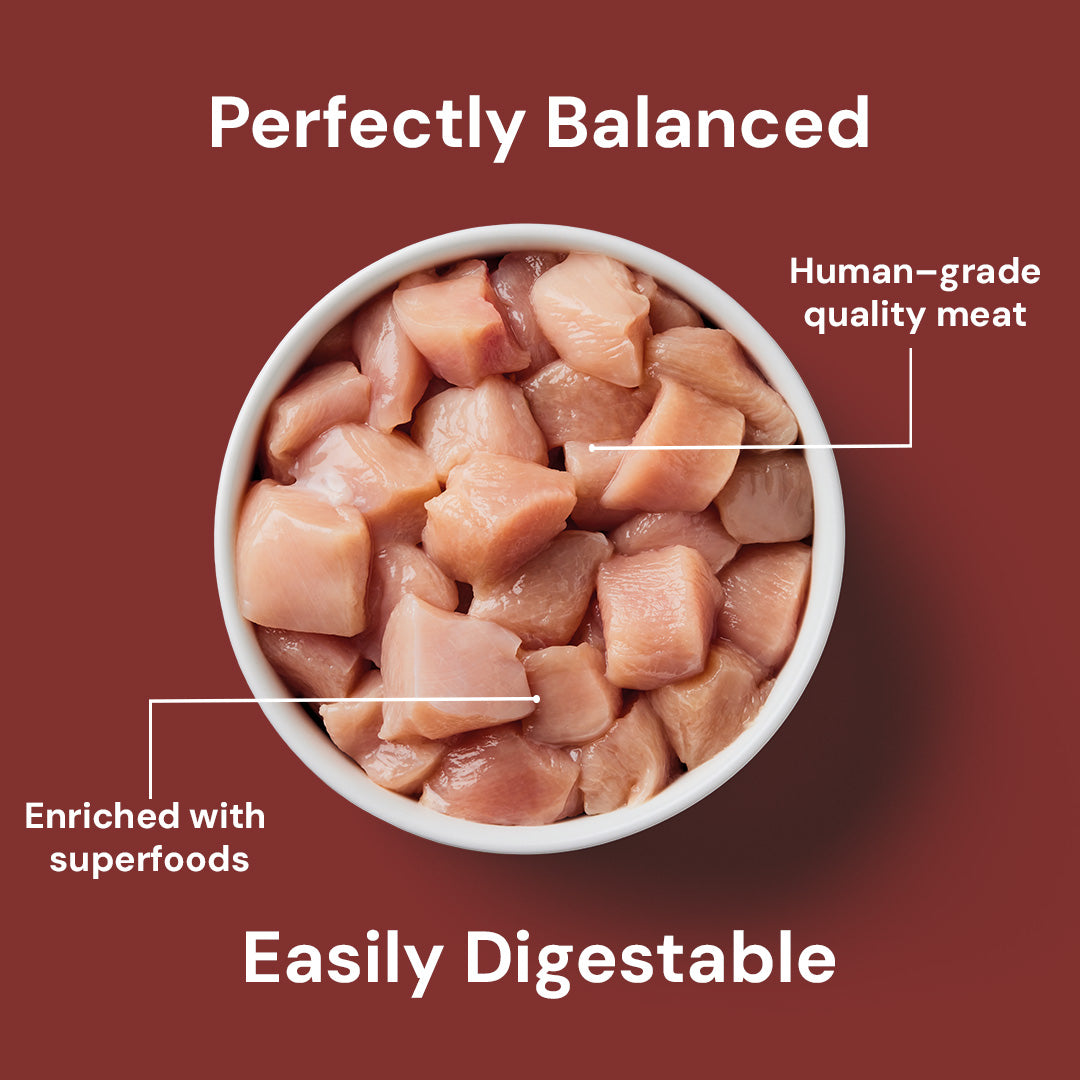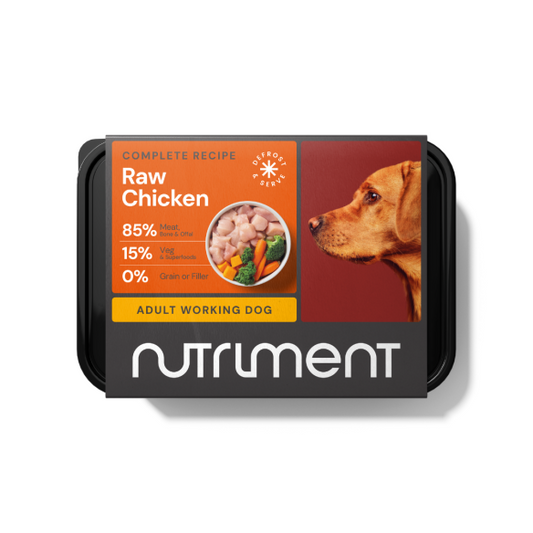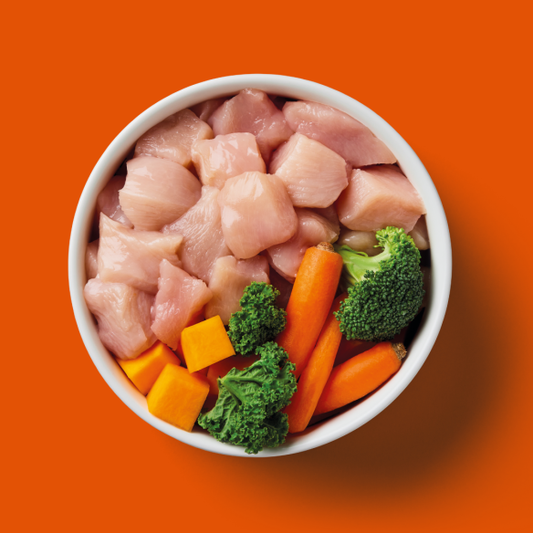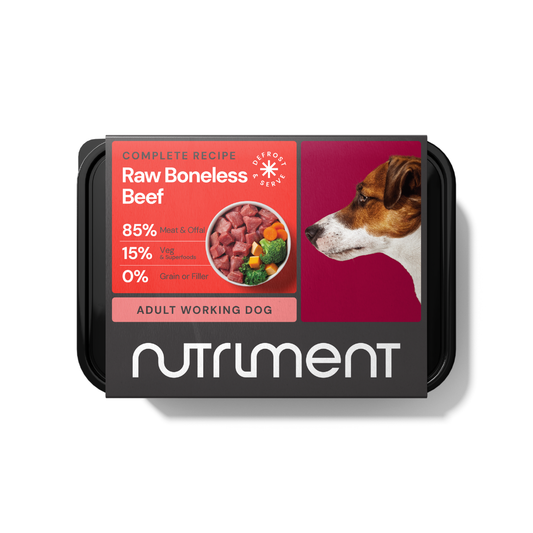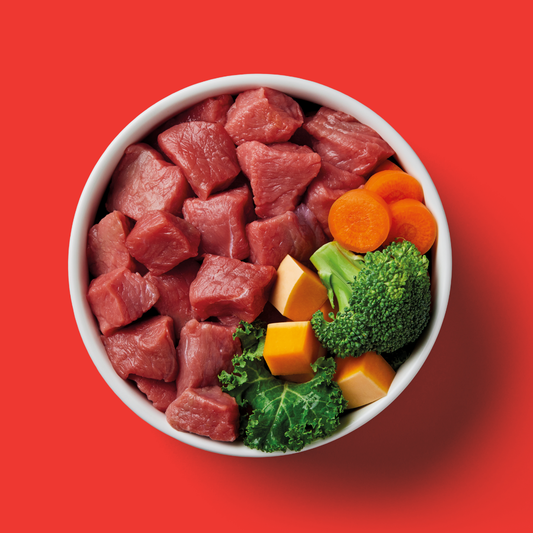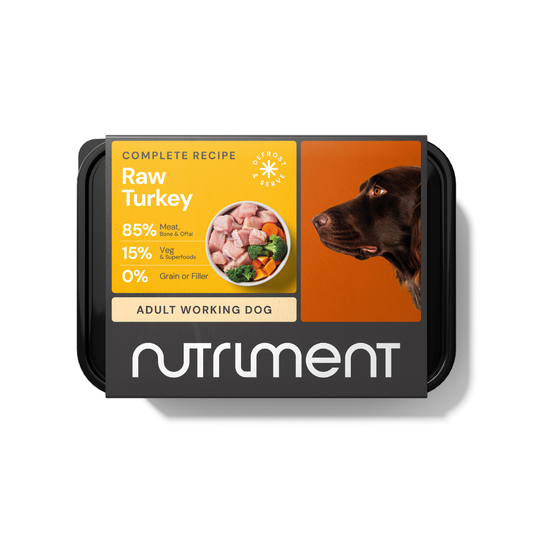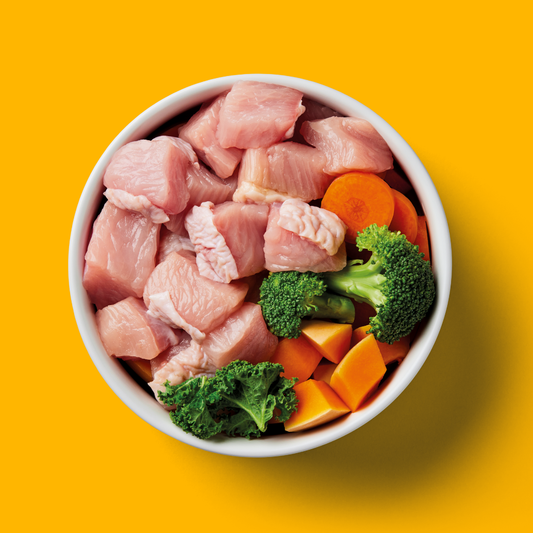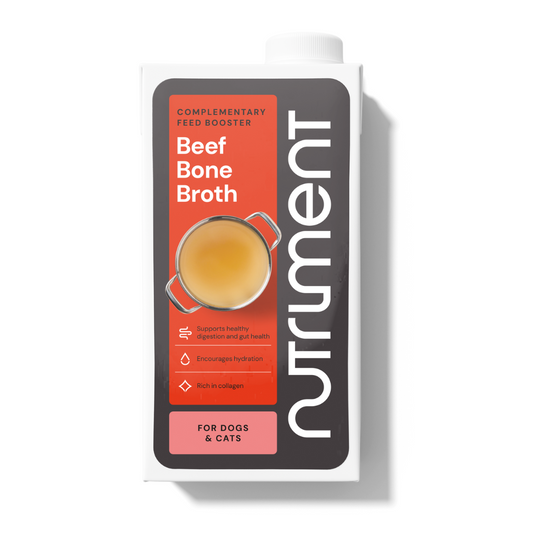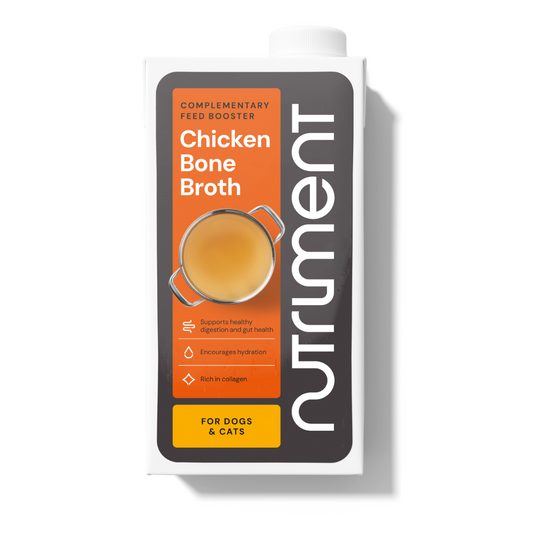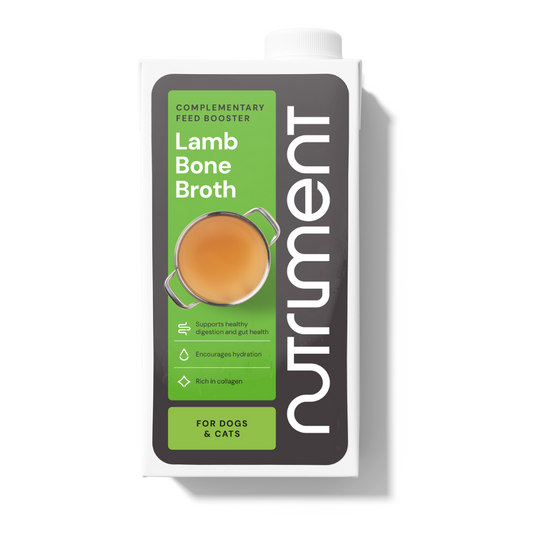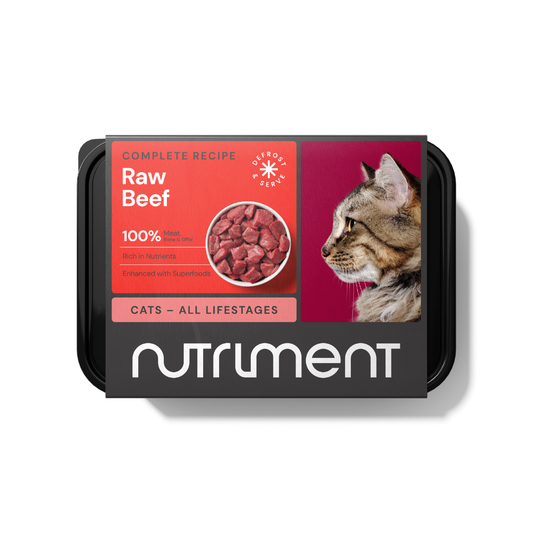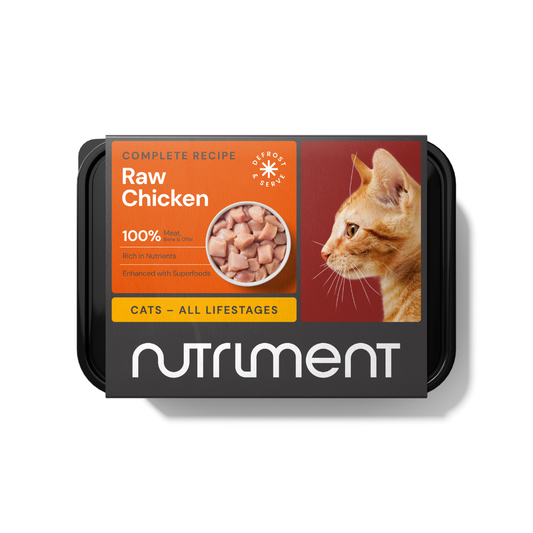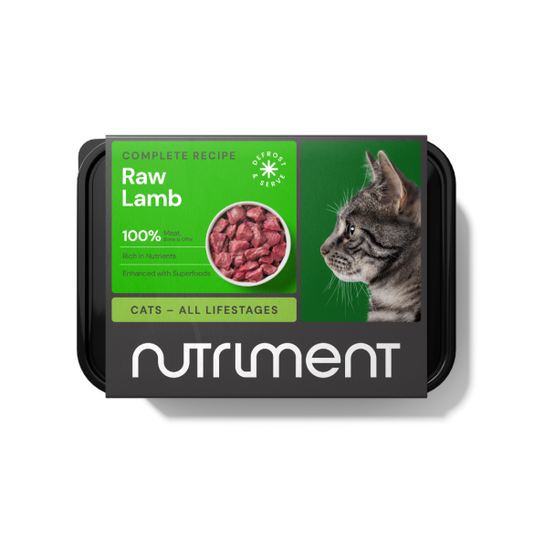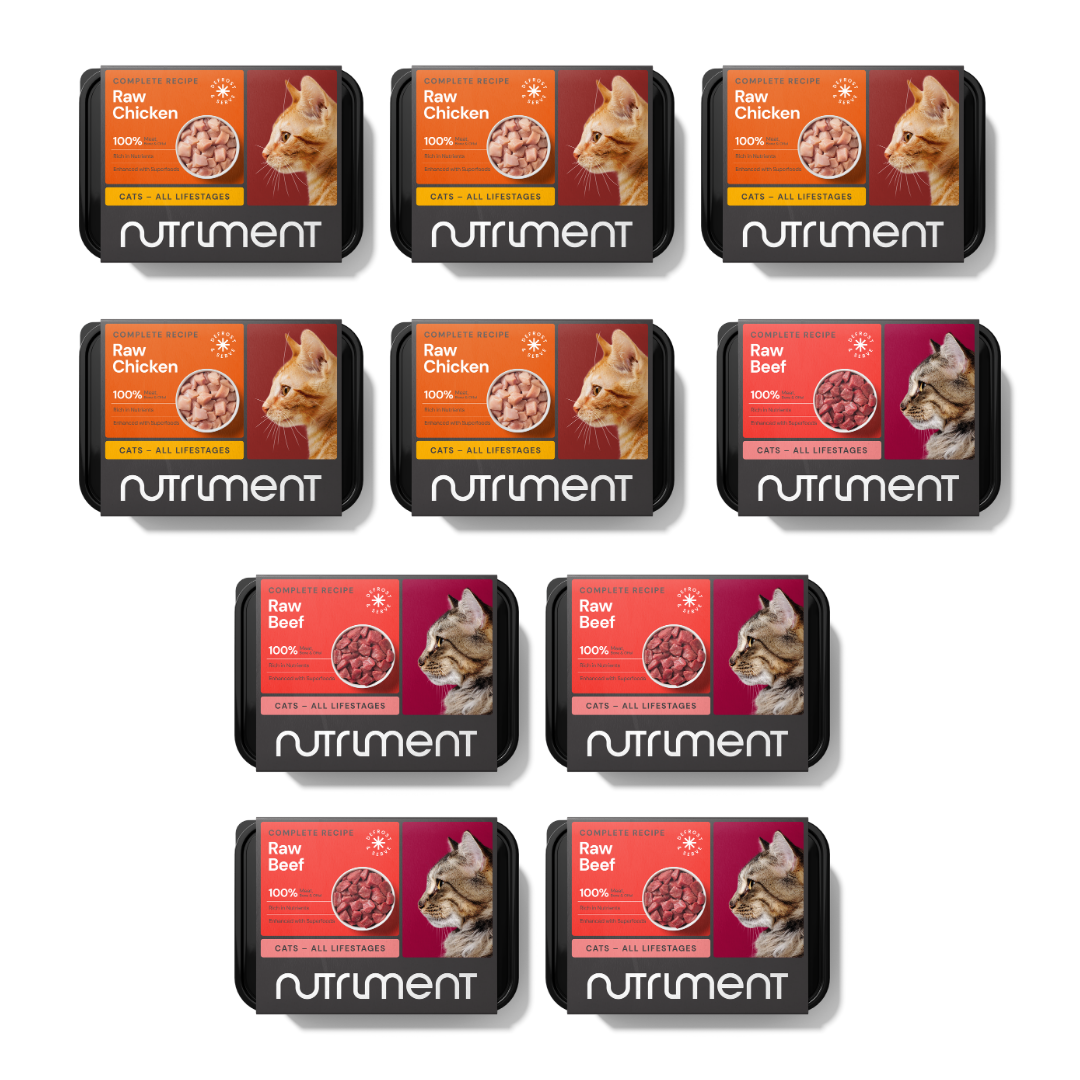
Cats need to be eating a meat based diet to survive. That’s not just a fun fact – it's science.
Our feline companions have a lot in common with their larger, wild ancestors; they’re obligate carnivores. This means that their body lacks the ability to naturally create certain nutrients they need to survive. Due to their digestive systems, cats can’t derive certain essential nutrients, like like taurine, vitamin A, and arachidonic acid, from plant sources in usable forms, so they need to consume them through meat.
And whilst ultra-processed diets are supplemented with these nutrients, cats need more than just these to live a long, happy, healthy life.
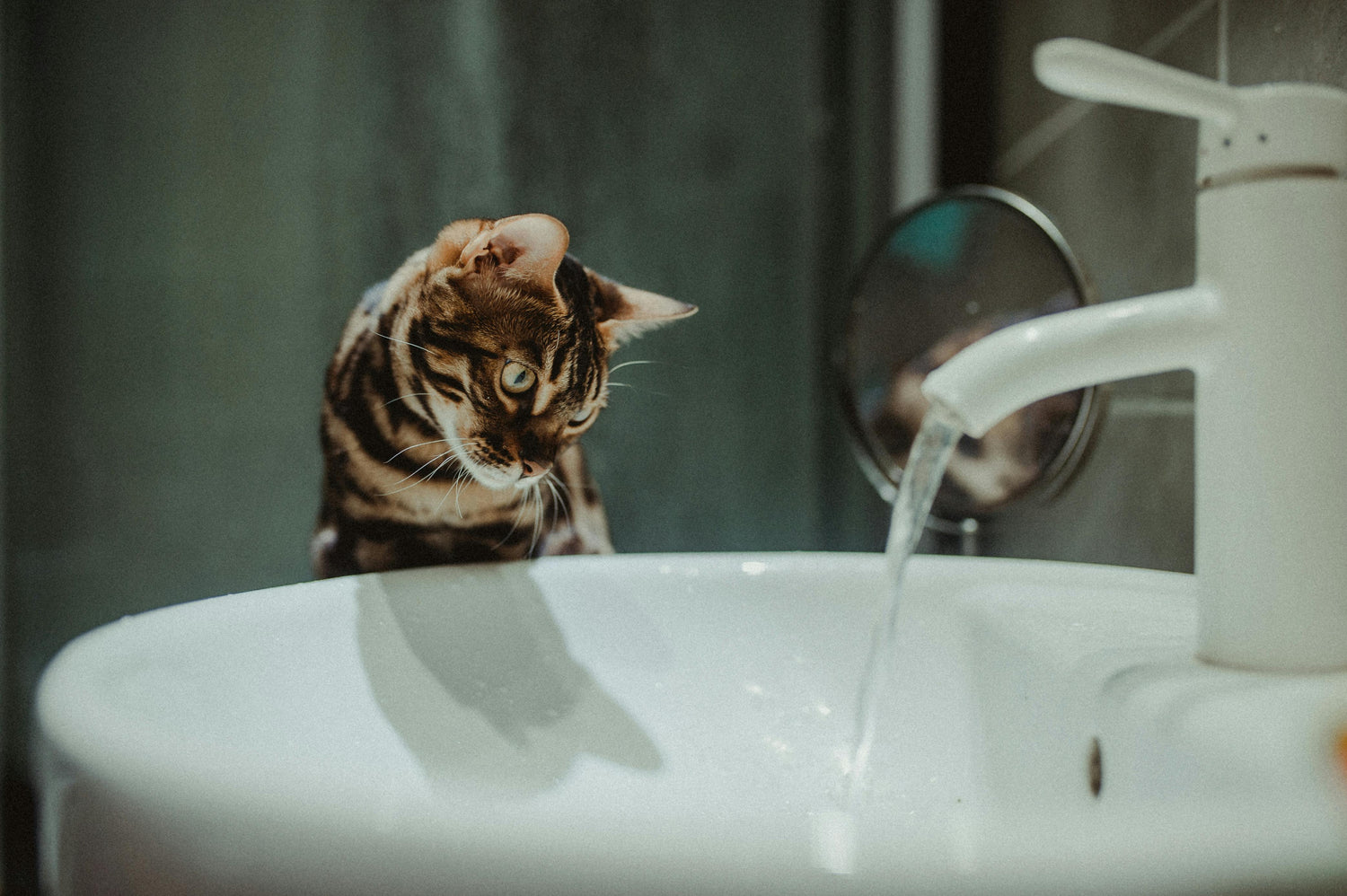
Cats need moisture
Did you know that cats have evolved from living in the desert? Living in such an arid habitat, cats ancestors got a lot of their moisture from their food rather than from water sources.
As a result, cats have a very low thirst drive and often won’t drink from a bowl even when they need it.
Therefore, it is essential that cats are fed a moisture rich diet. Kibble contains about 6-10% moisture whereas raw and wet foods contain between 60-75% - which is much closer to the moisture content they would be consuming from their prey.
Supporting their kidney and bladder health
Chronic kidney disease (CKD) and feline lower urinary tract disease (FLUTD) together affect around 5% of cats in the UK. While these aren't the most common feline health conditions, they are serious and become increasingly common as cats age.
Both CKD and FLUTD are issues that cats are biologically prone to.
Because of their desert-dwelling ancestors, cats are excellent at conserving water, which results in highly concentrated urine. While this adaptation helped them in the wild, it can irritate the bladder in modern domestic life. Over time, this can create the perfect conditions for crystals and stones to form, increasing the risk of urinary tract issues and kidney stress.
Feeding a moisture-rich diet, such as raw, helps reduce the risk of urinary and kidney issues by promoting regular urination and producing less concentrated urine.
Raw food contains sufficient moisture to support urinary and kidney health in cats but you can boost their intake by adding Bone Broth to their meals.
-
Regular price £12.09Regular price£24.18 / kg Unit price / per
-
Regular price £11.39Regular price£22.78 / kg Unit price / per
-
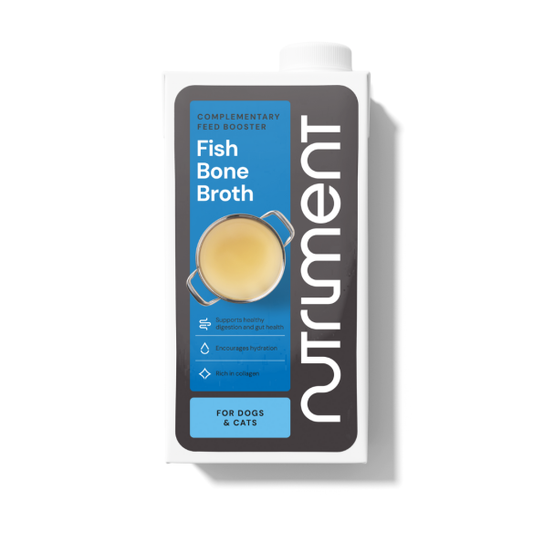 Sold outRegular price £11.39Regular price£22.78 / kg Unit price / per
Sold outRegular price £11.39Regular price£22.78 / kg Unit price / per -
Regular price £11.39Regular price£22.78 / kg Unit price / per
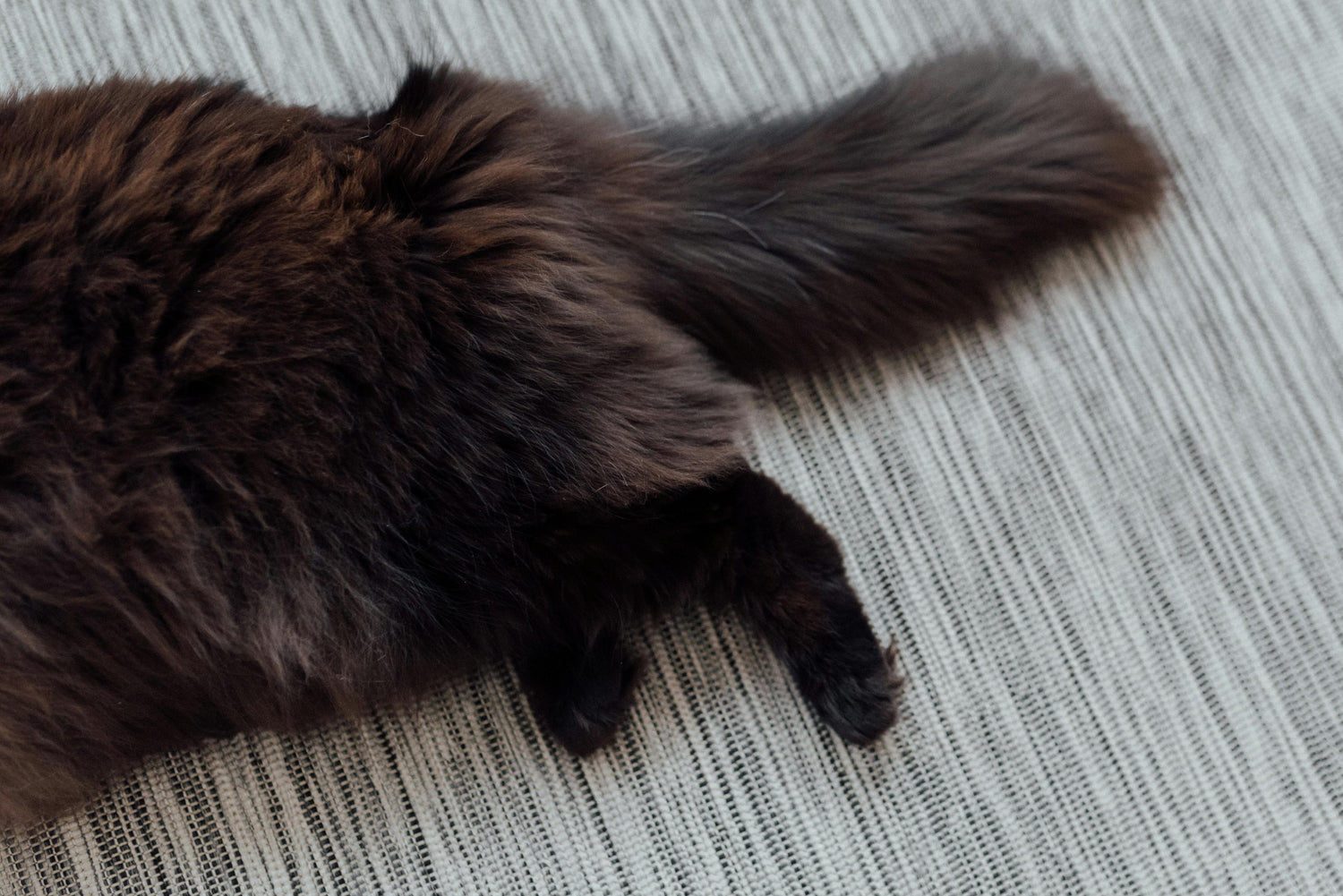
Anatomy plays a role too
A cat’s urethra (the tube that carries urine from the bladder out of the body) is naturally narrow and has a slight curve which makes it more prone to blockages. Even a small amount of crystals or inflammation can clog this narrow, winding passage, which, if left untreated can be life threatening.
Boosting the moisture in their diet is an effective way to reduce the possibility of blockages and flushing the system more effectively.
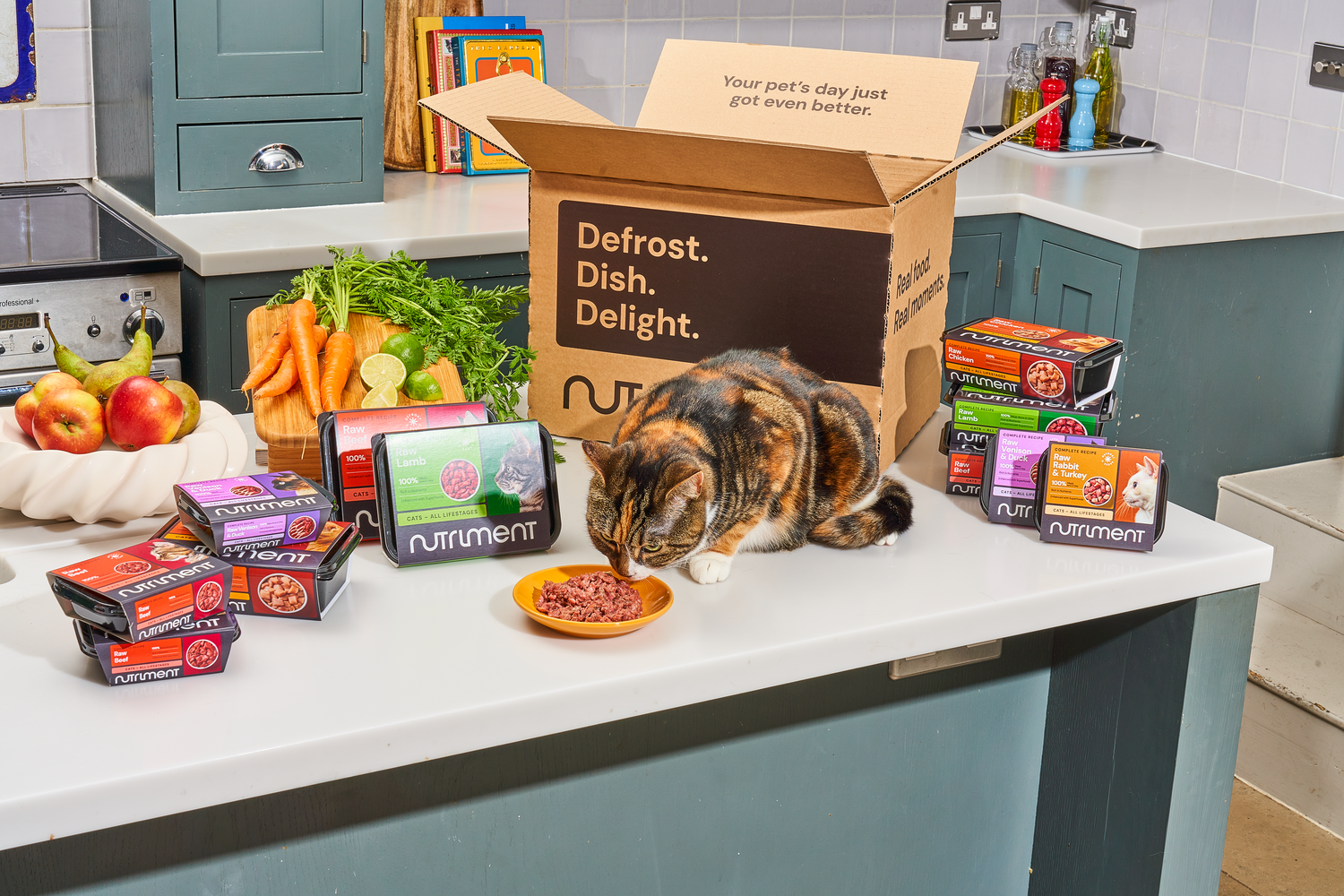
Raw changes urine pH
Urine pH also plays a part on feline urinary health and even small imbalances can lead to big problems.
Cats naturally have slightly acidic urine, typically between 6.0 and 6.5. This helps prevent the formation of urinary crystals and stones. But when diet and hydration fall short, that balance can shift.
Feeding a diet that’s too high in carbohydrates or lacking in animal protein can cause urine to become too alkaline, which increases the risk of struvite crystals forming. On the flip side, urine that’s too acidic can lead to calcium oxalate crystals.
A raw diet helps maintain an ideal urine pH. When paired with adequate hydration from the moisture content, it creates an environment in the bladder that’s less hospitable to crystal formation and inflammation.
How do I switch my cat to a raw diet?
Eating a bilogically appropiate diet is anatomically and biologically suited to help cats thrive. However, switching them from commercial, ultra-processed diets can be tricky!
Cats are notoriously fussy eaters which makes changing their diet a challenge, but it can be done.
Check out the below blog on how Harvey the Maine Coon switched to our raw recipes.
Shop our raw cat recipes
-
-
-
Regular price £3.39Regular price£19.37 / kg Unit price / per
-
New to raw and not sure where to start? Checkout our 5kg Cat Starter Box!
5kg Cat Starter Box
